Phenylketonuria (PKU) is an inherited disorder, caused by a faulty gene. People with PKU are born with a deficiency of a liver enzyme ( called phenylalanine hydroxylase - PAH).
An Affliction with too often irreversible consequences
Phenylketonuria (PKU) is caused by a disorder in the metabolism of phenylalanine, an aminoacid (protein fragment) present in food, and typically transformed into another aminoacid, tyrosine. The enzyme responsible for this aminoacid conversion is defective in PKU patients. The PKU babies gradually develop mental and psychomotor retardation with symptoms such as seizures,
nausea and vomiting, skin rash, hyperactivity, aggression or self-harm, reduced head circumference (microcephaly), lighter skin, eyes and hair (a result of tyrosine deficiency). Children often have a “mousy” or musty odor due to a phenylalanine by product in their urine and sweat.
called phenylalanine hydroxylase (PAH) is needed to process an amino acid called phenylalanine (Phe), found in foods containing protein. (Protein is made up of around 20 separate building blocks called amino acids). High protein foods include dairy products, red meat, chicken, fish, eggs, nuts, beans and lentils.. when we eat protein, it is broken down into different amino acids and used for growth, functioning and repair of the body. Because people with PKU can’t break down phenylalanine in the usual way, it builds up in the blood and damages the brain.
The diet is “an almost impossible mission.”
Maintaining the diet in childhood is essential to prevent damage to the growing brain. It is recommended that the diet is continued for life.
The child must follow a very strict low-protein diet, where meat, fish, eggs, dairy products, and starchy foods are eliminated. People with PKU need phenylalanine, but only a very small amount. The precarious availability in Morocco and the high cost of specific dietary products (flour, special pasta, complementary solutions, etc.) often mean that children “literally starve” to respect these rules. A box of specific milk for children costs around 500 Moroccan Dh and is rarely available in Morocco! In addition, a medication that stimulates the breakdown of phenylalanine and helps reduce the diet in some children exists but is also unavailable! In addition to the enormous constraints generated by the disease, families experience a “real struggle” between the high cost and unavailability of treatment! We must underline the significant assistance the association HEMSA in the US provided for shipping dietary products to SOS PKU in Morocco and their continuous advocacy efforts to have PKU recognized in Morocco.
A life-saving gesture but unfortunately not systematized in morocco : neonatal screening
Depending on the country, the disease affects between 1 in 20,000 and 1 in 4,000 newborns. Morocco most likely has a high prevalence due to the high consanguinity in the society, which increases the frequency of this genetic disease. Typically, this disease must be screened systematically in all newborns; the absence of this screening and the early regime results in several thousand children and adults with mental disabilities.
This test, carried out using a few drops of blood taken on the 3rd day of life and placed on a blotting paper, would make it possible to avoid these complications. All babies born in most countries in Europe and certain Arab countries are tested for PKU soon after birth, usually the second or third day.
A blood sample is taken from a needle prick on the heel, and the phenylalanine level is measured. If it is high, more tests are done to confirm that the baby has PKU. As soon as the diagnosis is made, the baby is given a special formula (also called a supplement) to lower the phenylalanine to a safe level.
AN INTERNATIONAL CONFERENCE ON PHENYLKETONURIA IN MOROCCO
The 2nd international conference on phenylketonuria (PKU) was held on November 17-19, 2023, in Marrakech. This event was co-organized by 4 associations: The Moroccan Association for Child and Mother’s Health (AMSEM), HMEMSA (Home of Moroccan Educators and Moroccan Students in America), SOS PKU MAROC, American Moroccan Competencies Network, and the support of the Alliance of Rare Diseases in Morocco (AMRM).
Information and awareness for health professionals as well as patients and families
This event aimed to promote the health of affected people with this disease through education, awareness, and support for research.
Eminent specialists from Morocco, the United States, Canada, and Europe intervened during the first scientific day. The 2nd day “PKU family camp” was dedicated to families, patients, and medical professionals to exchange the right support for parents with PKU patients and the long-life management of these patients. The day was also an opportunity for the clinician specialists to offer consultations to patients and psycho-educational support to their families.
Consultation with public authorities
Discussions are underway with the Ministry of Health and the various stakeholders for recognizing PKU as a long-term condition, launching a neonatal screening program, and marketing dietary products in Morocco.
The event was an an excellent opportunity to sign partnership agreements between AMSEM and SOS PKU MAROC with the Alliance of Rare Diseases in Morocco. This exciting development will undoubtedly pave the way for fruitful collaboration between these organizations, improve and save lives, reduce PKU patients suffering, and provide substantial spill over benefits for maternal, child, and family health.

Dr MOUSSAYER KHADIJA الدكتورة خديجة موسيار
Chairwoman of Alliance Rare diseases Morocco
WHAT ELSE TO KNOW : A faulty enzyme : phenylalanine hydroxylase, Robert Guthrie : the father of the screening test, International PKU Day, RARE DISEASES DAY : RARE IS Not Rare ! RESUME en français, , Bibliography, Pictures gallery
A FAULTY ENZYME : PHENYLALANINE HYDROXYLASE
An enzyme called phenylalanine hydroxylase (PAH) is needed to process an amino acid called phenylalanine (Phe), found in foods containing protein. (Protein is made up of around 20 separate building blocks called amino acids). High protein foods include dairy products, red meat, chicken, fish, eggs, nuts, beans andAn enzyme called phenylalanine hydroxylase (PAH) is needed to process an amino acid called phenylalanine (Phe), found in foods containing protein. (Protein is made up of around 20 separate building blocks called amino acids). High protein foods include dairy products, red meat, chicken, fish, eggs, nuts, beans and lentils.. when we eat protein, it is broken down into different amino acids and used for growth, functioning and repair of the body. Because people with PKU can’t break down phenylalanine in the usual way, it builds up in the blood and damages the brain.
ROBERT GUTHRIE : the father of the screening test
Robert Guthrie was born June 28th, 1916. He invented the possibility for newborn screening. This test is also known as the “Guthrie test”. Professor Guthrie had a PKU niece and wanted to find a way to diagnose those born with PKU at birth and ensure all babies born were screened for PKU. He invented heel prick test also known as the Guthrie test for all new-borns. He campaigned tirelessly in several countries to get New Born Screening adopted and along the way saved thousands of lives.
PKU Day is taking place on June 28th!
RARE DISEASES DAY : RARE IS Not Rare !
Rare Disease Day is a global initiative to raise awareness and generate support for everyone who is on a rare medical journey. It takes place on the last day of February, which this year is February 29th, the rarest day of the year.
What is a rare disease ? In the United States, a disease is considered rare if it is affects fewer than 200,000 Americans. Some countries and the European Union have similar but slightly different definitions.
How many people have rare diseases ? According to the National Institutes of Health (NIH), there are approximately 7,000 rare diseases affecting between 25 and 30 million Americans. This equates to 1 in 10 Americans, or one on every elevator and four on every bus.
What are some examples of rare diseases ? Rare diseases are present across the medical spectrum. Some are widely recognized by name, such as cystic fibrosis, while others are less known, such as cat eye syndrome. Most cancers (all but a few types) are rare. There are rare neurological and neuromuscular diseases, metabolic diseases, chromosomal disorders, skin diseases, bone and skeletal disorders, and rare diseases affecting the heart, blood, lungs, kidneys, and otherbody organs and systems. Many rare diseases are named for the physicians who first identified them. A few are named for patients or even the hospitals where they were first identified.
FROM
National Organization for Rare Disorders
RESUME en français
La PCU est une maladie rare héréditaire responsable, en absence de diagnostic et de prise en charge précoce, d’un retard psychomoteur et mental aux conséquences graves, à la suite de la destruction des cellules nerveuses du cerveau par l’accumulation toxique d’un acide aminé (phénylalanine). Le seul traitement est un régime alimentaire se basant sur des produits diététiques faibles en phénylalanine, malheureusement très chers.
Les 17 et 18 novembre 2023 s’est tenue à Marrakech la 2ème conférence internationale sur la phénylcétonurie (PCU), coorganisée par 4 entités : Association Marocaine pour la Santé de l’Enfant et de la Mère (AMSEM), HMEMSA (Home of Moroccan Educators and Moroccan Students in America), SOS PKU MAROC, American Moroccan Competencies Network et avec le soutien de l’Alliance des Maladies Rares au Maroc (AMRM).
Cet évènement avait pour objectif de promouvoir la santé des personnes atteinte à travers l’éducation, la sensibilisation et le soutien à la recherche.
BIBLIOGRAPHY
Orphanet : : www.orphanet.fr
La Plateforme Maladies Rares: http://www.plateforme-maladiesrares.org/
ALLIANCE maladies rares : http://www.alliance-maladies-rares.org/
EURORDIS http://www.eurordis.org/
PICTURES GALLERY
PICTURES GALLERY of The 2nd international conference on phenylketonuria (PKU) was held on November 17-19, 2023, in Marrakech. This event was co-organized by 4 associations: The Moroccan Association for Child and Mother’s Health (AMSEM), HMEMSA (Home of Moroccan Educators and Moroccan Students in America), SOS PKU MAROC, American Moroccan Competencies Network, and the support of the Alliance of Rare Diseases in Morocco (AMRM).
An Affliction with too often irreversible consequences
Phenylketonuria (PKU) is caused by a disorder in the metabolism of phenylalanine, an aminoacid (protein fragment) present in food, and typically transformed into another aminoacid, tyrosine. The enzyme responsible for this aminoacid conversion is defective in PKU patients. The PKU babies gradually develop mental and psychomotor retardation with symptoms such as seizures,
nausea and vomiting, skin rash, hyperactivity, aggression or self-harm, reduced head circumference (microcephaly), lighter skin, eyes and hair (a result of tyrosine deficiency). Children often have a “mousy” or musty odor due to a phenylalanine by product in their urine and sweat.
called phenylalanine hydroxylase (PAH) is needed to process an amino acid called phenylalanine (Phe), found in foods containing protein. (Protein is made up of around 20 separate building blocks called amino acids). High protein foods include dairy products, red meat, chicken, fish, eggs, nuts, beans and lentils.. when we eat protein, it is broken down into different amino acids and used for growth, functioning and repair of the body. Because people with PKU can’t break down phenylalanine in the usual way, it builds up in the blood and damages the brain.
The diet is “an almost impossible mission.”
Maintaining the diet in childhood is essential to prevent damage to the growing brain. It is recommended that the diet is continued for life.
The child must follow a very strict low-protein diet, where meat, fish, eggs, dairy products, and starchy foods are eliminated. People with PKU need phenylalanine, but only a very small amount. The precarious availability in Morocco and the high cost of specific dietary products (flour, special pasta, complementary solutions, etc.) often mean that children “literally starve” to respect these rules. A box of specific milk for children costs around 500 Moroccan Dh and is rarely available in Morocco! In addition, a medication that stimulates the breakdown of phenylalanine and helps reduce the diet in some children exists but is also unavailable! In addition to the enormous constraints generated by the disease, families experience a “real struggle” between the high cost and unavailability of treatment! We must underline the significant assistance the association HEMSA in the US provided for shipping dietary products to SOS PKU in Morocco and their continuous advocacy efforts to have PKU recognized in Morocco.
Depending on the country, the disease affects between 1 in 20,000 and 1 in 4,000 newborns. Morocco most likely has a high prevalence due to the high consanguinity in the society, which increases the frequency of this genetic disease. Typically, this disease must be screened systematically in all newborns; the absence of this screening and the early regime results in several thousand children and adults with mental disabilities.
This test, carried out using a few drops of blood taken on the 3rd day of life and placed on a blotting paper, would make it possible to avoid these complications. All babies born in most countries in Europe and certain Arab countries are tested for PKU soon after birth, usually the second or third day.
A blood sample is taken from a needle prick on the heel, and the phenylalanine level is measured. If it is high, more tests are done to confirm that the baby has PKU. As soon as the diagnosis is made, the baby is given a special formula (also called a supplement) to lower the phenylalanine to a safe level.
AN INTERNATIONAL CONFERENCE ON PHENYLKETONURIA IN MOROCCO
The 2nd international conference on phenylketonuria (PKU) was held on November 17-19, 2023, in Marrakech. This event was co-organized by 4 associations: The Moroccan Association for Child and Mother’s Health (AMSEM), HMEMSA (Home of Moroccan Educators and Moroccan Students in America), SOS PKU MAROC, American Moroccan Competencies Network, and the support of the Alliance of Rare Diseases in Morocco (AMRM).
Information and awareness for health professionals as well as patients and families
This event aimed to promote the health of affected people with this disease through education, awareness, and support for research.
Eminent specialists from Morocco, the United States, Canada, and Europe intervened during the first scientific day. The 2nd day “PKU family camp” was dedicated to families, patients, and medical professionals to exchange the right support for parents with PKU patients and the long-life management of these patients. The day was also an opportunity for the clinician specialists to offer consultations to patients and psycho-educational support to their families.
Consultation with public authorities
Discussions are underway with the Ministry of Health and the various stakeholders for recognizing PKU as a long-term condition, launching a neonatal screening program, and marketing dietary products in Morocco.
The event was an an excellent opportunity to sign partnership agreements between AMSEM and SOS PKU MAROC with the Alliance of Rare Diseases in Morocco. This exciting development will undoubtedly pave the way for fruitful collaboration between these organizations, improve and save lives, reduce PKU patients suffering, and provide substantial spill over benefits for maternal, child, and family health.

Dr MOUSSAYER KHADIJA الدكتورة خديجة موسيار
Chairwoman of Alliance Rare diseases Morocco
WHAT ELSE TO KNOW : A faulty enzyme : phenylalanine hydroxylase, Robert Guthrie : the father of the screening test, International PKU Day, RARE DISEASES DAY : RARE IS Not Rare ! RESUME en français, , Bibliography, Pictures gallery
A FAULTY ENZYME : PHENYLALANINE HYDROXYLASE
An enzyme called phenylalanine hydroxylase (PAH) is needed to process an amino acid called phenylalanine (Phe), found in foods containing protein. (Protein is made up of around 20 separate building blocks called amino acids). High protein foods include dairy products, red meat, chicken, fish, eggs, nuts, beans andAn enzyme called phenylalanine hydroxylase (PAH) is needed to process an amino acid called phenylalanine (Phe), found in foods containing protein. (Protein is made up of around 20 separate building blocks called amino acids). High protein foods include dairy products, red meat, chicken, fish, eggs, nuts, beans and lentils.. when we eat protein, it is broken down into different amino acids and used for growth, functioning and repair of the body. Because people with PKU can’t break down phenylalanine in the usual way, it builds up in the blood and damages the brain.
ROBERT GUTHRIE : the father of the screening test
Robert Guthrie was born June 28th, 1916. He invented the possibility for newborn screening. This test is also known as the “Guthrie test”. Professor Guthrie had a PKU niece and wanted to find a way to diagnose those born with PKU at birth and ensure all babies born were screened for PKU. He invented heel prick test also known as the Guthrie test for all new-borns. He campaigned tirelessly in several countries to get New Born Screening adopted and along the way saved thousands of lives.
International PKU Day
International PKU Day was an idea born by the E.S.PKU (European Society for Phenylketonuria and Allied Disorders Treated as Phenylketonuria). Supported by the delegates the first PKU Day took place in 2013.PKU Day is taking place on June 28th!
RARE DISEASES DAY : RARE IS Not Rare !
Rare Disease Day is a global initiative to raise awareness and generate support for everyone who is on a rare medical journey. It takes place on the last day of February, which this year is February 29th, the rarest day of the year.
What is a rare disease ? In the United States, a disease is considered rare if it is affects fewer than 200,000 Americans. Some countries and the European Union have similar but slightly different definitions.
How many people have rare diseases ? According to the National Institutes of Health (NIH), there are approximately 7,000 rare diseases affecting between 25 and 30 million Americans. This equates to 1 in 10 Americans, or one on every elevator and four on every bus.
What are some examples of rare diseases ? Rare diseases are present across the medical spectrum. Some are widely recognized by name, such as cystic fibrosis, while others are less known, such as cat eye syndrome. Most cancers (all but a few types) are rare. There are rare neurological and neuromuscular diseases, metabolic diseases, chromosomal disorders, skin diseases, bone and skeletal disorders, and rare diseases affecting the heart, blood, lungs, kidneys, and otherbody organs and systems. Many rare diseases are named for the physicians who first identified them. A few are named for patients or even the hospitals where they were first identified.
FROM
National Organization for Rare Disorders
RESUME en français
La PCU est une maladie rare héréditaire responsable, en absence de diagnostic et de prise en charge précoce, d’un retard psychomoteur et mental aux conséquences graves, à la suite de la destruction des cellules nerveuses du cerveau par l’accumulation toxique d’un acide aminé (phénylalanine). Le seul traitement est un régime alimentaire se basant sur des produits diététiques faibles en phénylalanine, malheureusement très chers.
Les 17 et 18 novembre 2023 s’est tenue à Marrakech la 2ème conférence internationale sur la phénylcétonurie (PCU), coorganisée par 4 entités : Association Marocaine pour la Santé de l’Enfant et de la Mère (AMSEM), HMEMSA (Home of Moroccan Educators and Moroccan Students in America), SOS PKU MAROC, American Moroccan Competencies Network et avec le soutien de l’Alliance des Maladies Rares au Maroc (AMRM).
Cet évènement avait pour objectif de promouvoir la santé des personnes atteinte à travers l’éducation, la sensibilisation et le soutien à la recherche.
BIBLIOGRAPHY
Orphanet : : www.orphanet.fr
La Plateforme Maladies Rares: http://www.plateforme-maladiesrares.org/
ALLIANCE maladies rares : http://www.alliance-maladies-rares.org/
EURORDIS http://www.eurordis.org/
PICTURES GALLERY
PICTURES GALLERY of The 2nd international conference on phenylketonuria (PKU) was held on November 17-19, 2023, in Marrakech. This event was co-organized by 4 associations: The Moroccan Association for Child and Mother’s Health (AMSEM), HMEMSA (Home of Moroccan Educators and Moroccan Students in America), SOS PKU MAROC, American Moroccan Competencies Network, and the support of the Alliance of Rare Diseases in Morocco (AMRM).
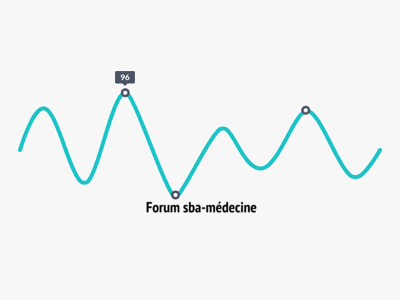


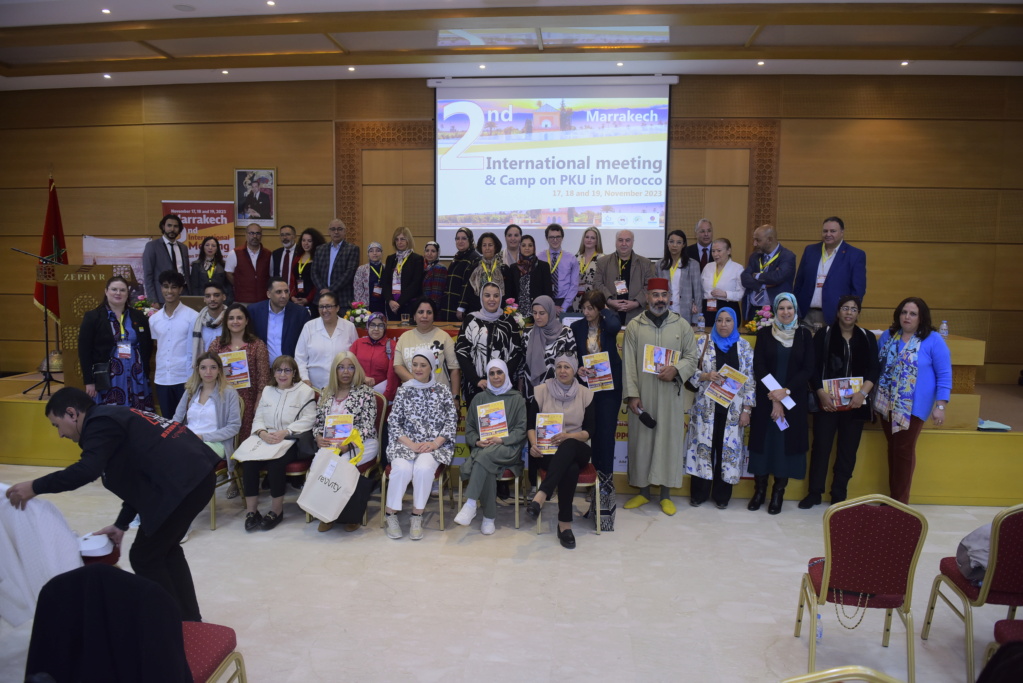

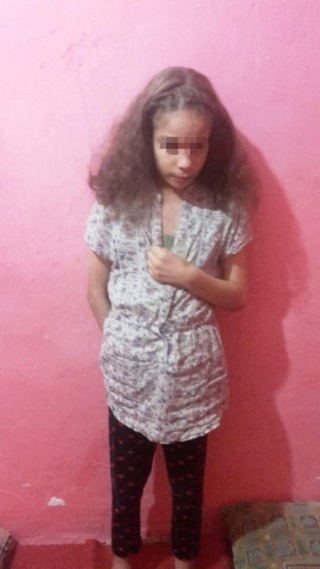
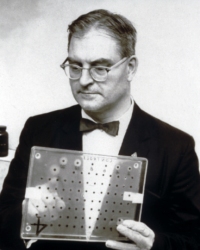
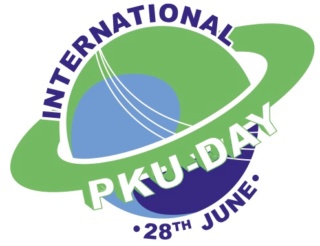


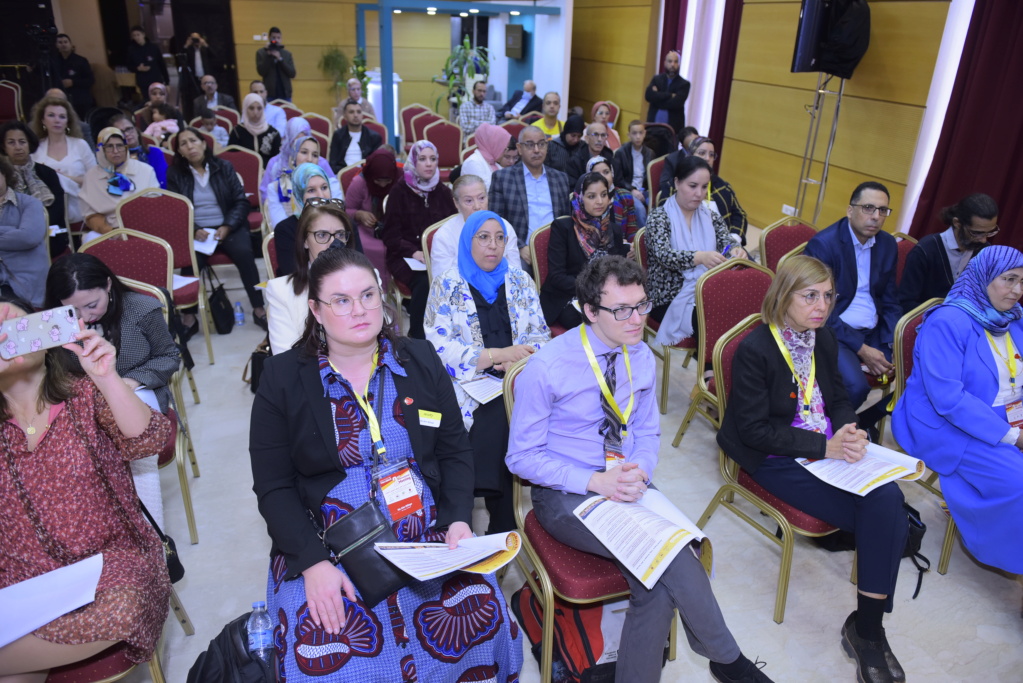



 laisser un commentaire rapide:
laisser un commentaire rapide: